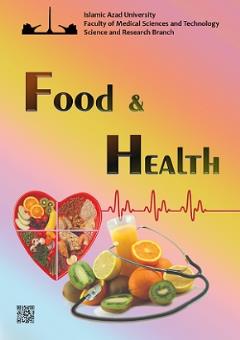-
-
-
Open Access Article
1 - Performance assessment of a food safety management system in meat processing plants and the local market of Tehran: A microbial source tracking study
Hossein Nazarian Masoumeh Moslemi Zahra Pilevar Leyla Alizadeh Hedayat Hosseini -
Open Access Article
2 - A narrative review on the application of sanitizers in the COVID-19 pandemic
Vahid Ranaei Leyla Alizadeh Zahra Pilevar Teamur Aghamolaei Hedayat Hosseini
List of Articles Hedayat Hosseini
-
The rights to this website are owned by the Raimag Press Management System.
Copyright © 2021-2025


